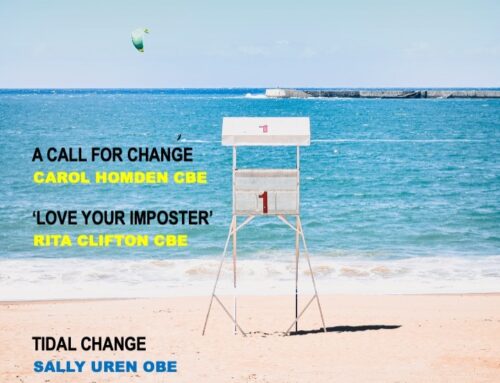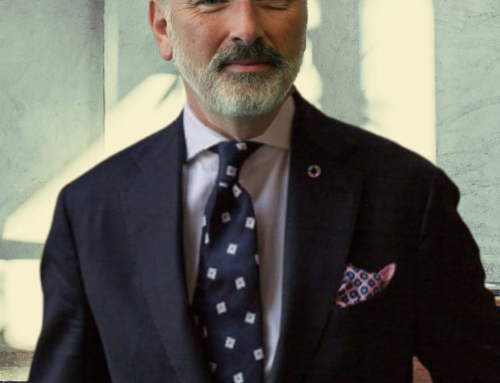Paul Polman
The battle against Coronavirus:
will our best or worst side win?

The reaction to this crisis is a contradiction. On the one hand, it’s drawing the best from us. Families and friends are reconnecting. Strangers are helping each other get food and stay safe, especially the elderly and vulnerable. We are in growing admiration of our health workers. We’ve been reminded of our shared humanity as this indiscriminate pandemic threatens all our societies.
On the other hand, and at another level, COVID-19 is exposing our worst traits. International solidarity has been in shockingly short supply. We’ve heard strong words from the G20, with no sign of meaningful, coordinated action. US/China relations have descended into a blame game. Familiar feuds are dividing Europe over the correct economic response. In a bout of rising protectionism, over 50 states have introduced new export restrictions inhibiting the flow of medical supplies. All while developing nations brace themselves for a humanitarian catastrophe, with little reassurance wealthier countries will step in to help.
Everyone says our societies are at war with this virus, but perhaps the real battle is between the two sides of ourselves.
What matters now is leadership. This is an extraordinary situation and it requires extraordinary measures from extraordinary human beings. We need governments to strengthen health systems and stem the spread, while supporting families and businesses through these dark days and into our eventual recovery. It’s up to international institutions to coordinate regional and global efforts. Companies should bring their core assets to the frontline, from redeploying factories to donating technology, equipment and drugs. The best minds in medicine must continue sharing knowledge to advance a cure at speed. The voluntary and aid sectors are critical in keeping communities afloat, at home and abroad. As the WHO’s Director General put it, we need a “whole-of-government, whole-of-society” response.
It’s a big test, requiring new partnerships between organisations not used to working with each other, which more often compete. Old divisions and rivalries impede collective action and need to be swept away. Left/right, public sector/private sector, national authorities/international institutions, developed economies/developing nations – all need to be pooling resources and pulling in the same direction. The virus is blind to our differences, and we must be too.
The private sector is mobilising faster than most would have anticipated. In some cases, faster than governments. Not all companies, of course. There will always be opportunists who put profits before people. While the financial sector is starting to move in the right direction, some players still continue to profiteer from this environment at the expense of weakened companies. But in other industries more firms are stepping up, whether its fashion producing face masks or manufacturers making ventilators.
And for every company I’ve heard making layoffs or limiting sick pay, others are doing everything possible to protect their staff and suppliers. Unilever will offer €500m of cash flow relief to support livelihoods across its extended value chain. Salesforce has promised no job losses in the next 90 days and is providing mental health support to its employees. American retailer Target has increased hourly wages and given one-time bonuses to tens of thousands of workers.
We are also seeing unexpected collaboration. Rather than simply lobbying for themselves, last week 45 million companies teamed up with the biggest global collective of trade unions to urge powerful nations to get vital supplies to the most in need and stand by the poorest countries.
My new organisation IMAGINE is working with CEOs who want to move collectively, across their industries, to tackle the virus, despite the pressure to turn inwards. Many of the business leaders we speak to are making the connection between the current pandemic and humanity’s other urgent problems. For example, our broken food system, now under severe strain, and global inequality, which will only worsen as a result of COVID-19. Climate change hasn’t dropped off their radars and coronavirus hasn’t killed off all corporate courage. If anything, we’re seeing some c-suites approach these burning issues with new zeal.
Do these examples, of ethical behaviour at a time of great stress, mean we’re reaching a tipping point for moral capitalism? I don’t know. The truth is it’s too early to say. But, just maybe, we’ve come further than we thought. Only time will tell. More broadly, we will see in the days and weeks ahead if our leaders can rise to this challenge. Coronavirus is holding up a mirror to our best and worst sides: generosity and ingenuity versus insularity and division. The virus doesn’t decide which wins. Only we can do that.
Paul Polman
Co-founder of IMAGINE
Chair of the International Chambers of Commerce
@PaulPolman
https://imagine.one/
https://iccwbo.org/

Paul Polman
The battle against Coronavirus:
will our best or worst side win?

The reaction to this crisis is a contradiction. On the one hand, it’s drawing the best from us. Families and friends are reconnecting. Strangers are helping each other get food and stay safe, especially the elderly and vulnerable. We are in growing admiration of our health workers. We’ve been reminded of our shared humanity as this indiscriminate pandemic threatens all our societies.
On the other hand, and at another level, COVID-19 is exposing our worst traits. International solidarity has been in shockingly short supply. We’ve heard strong words from the G20, with no sign of meaningful, coordinated action. US/China relations have descended into a blame game. Familiar feuds are dividing Europe over the correct economic response. In a bout of rising protectionism, over 50 states have introduced new export restrictions inhibiting the flow of medical supplies. All while developing nations brace themselves for a humanitarian catastrophe, with little reassurance wealthier countries will step in to help.
Everyone says our societies are at war with this virus, but perhaps the real battle is between the two sides of ourselves.
What matters now is leadership. This is an extraordinary situation and it requires extraordinary measures from extraordinary human beings. We need governments to strengthen health systems and stem the spread, while supporting families and businesses through these dark days and into our eventual recovery. It’s up to international institutions to coordinate regional and global efforts. Companies should bring their core assets to the frontline, from redeploying factories to donating technology, equipment and drugs. The best minds in medicine must continue sharing knowledge to advance a cure at speed. The voluntary and aid sectors are critical in keeping communities afloat, at home and abroad. As the WHO’s Director General put it, we need a “whole-of-government, whole-of-society” response.
It’s a big test, requiring new partnerships between organisations not used to working with each other, which more often compete. Old divisions and rivalries impede collective action and need to be swept away. Left/right, public sector/private sector, national authorities/international institutions, developed economies/developing nations – all need to be pooling resources and pulling in the same direction. The virus is blind to our differences, and we must be too.
The private sector is mobilising faster than most would have anticipated. In some cases, faster than governments. Not all companies, of course. There will always be opportunists who put profits before people. While the financial sector is starting to move in the right direction, some players still continue to profiteer from this environment at the expense of weakened companies. But in other industries more firms are stepping up, whether its fashion producing face masks or manufacturers making ventilators.
And for every company I’ve heard making layoffs or limiting sick pay, others are doing everything possible to protect their staff and suppliers. Unilever will offer €500m of cash flow relief to support livelihoods across its extended value chain. Salesforce has promised no job losses in the next 90 days and is providing mental health support to its employees. American retailer Target has increased hourly wages and given one-time bonuses to tens of thousands of workers.
We are also seeing unexpected collaboration. Rather than simply lobbying for themselves, last week 45 million companies teamed up with the biggest global collective of trade unions to urge powerful nations to get vital supplies to the most in need and stand by the poorest countries.
My new organisation IMAGINE is working with CEOs who want to move collectively, across their industries, to tackle the virus, despite the pressure to turn inwards. Many of the business leaders we speak to are making the connection between the current pandemic and humanity’s other urgent problems. For example, our broken food system, now under severe strain, and global inequality, which will only worsen as a result of COVID-19. Climate change hasn’t dropped off their radars and coronavirus hasn’t killed off all corporate courage. If anything, we’re seeing some c-suites approach these burning issues with new zeal.
Do these examples, of ethical behaviour at a time of great stress, mean we’re reaching a tipping point for moral capitalism? I don’t know. The truth is it’s too early to say. But, just maybe, we’ve come further than we thought. Only time will tell. More broadly, we will see in the days and weeks ahead if our leaders can rise to this challenge. Coronavirus is holding up a mirror to our best and worst sides: generosity and ingenuity versus insularity and division. The virus doesn’t decide which wins. Only we can do that.
Paul Polman
Co-founder of IMAGINE
Chair of the International Chambers of Commerce
@PaulPolman
https://imagine.one/
https://iccwbo.org/




